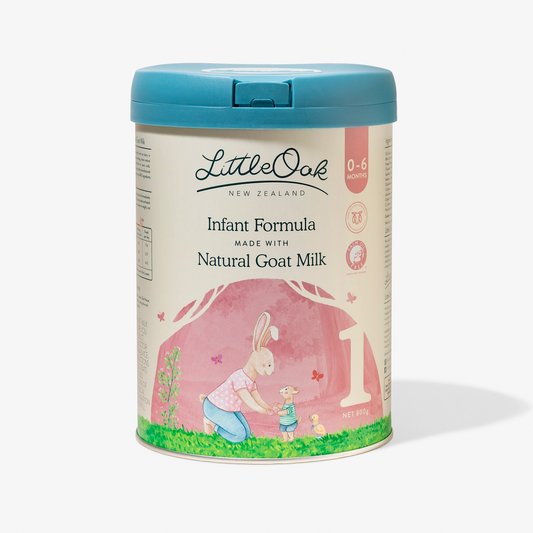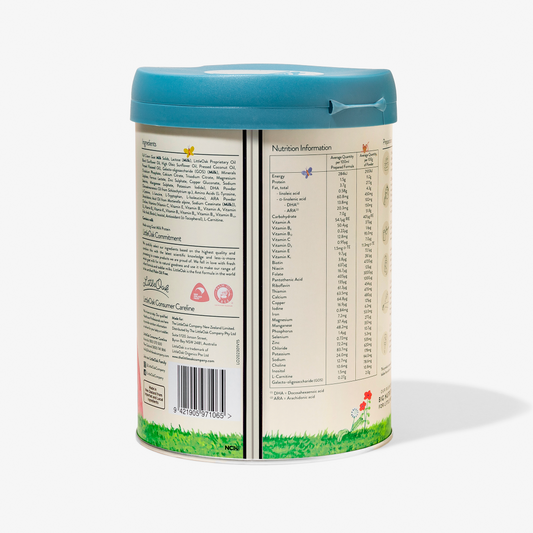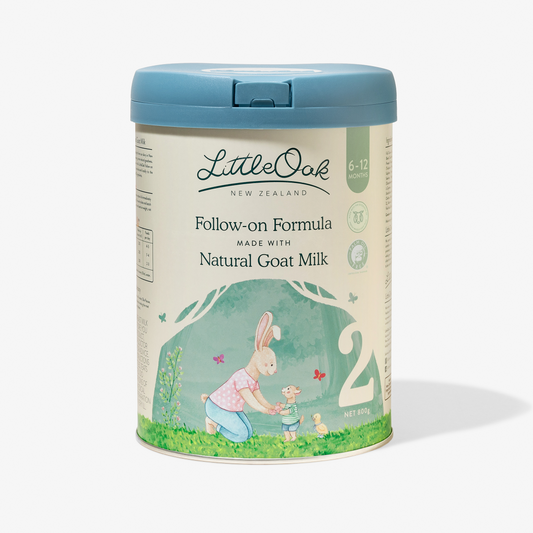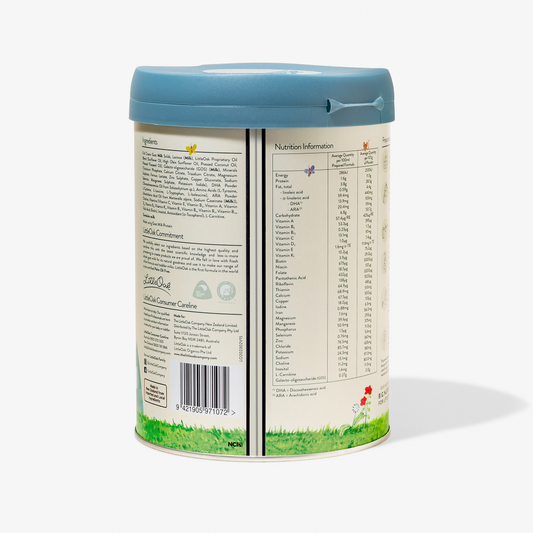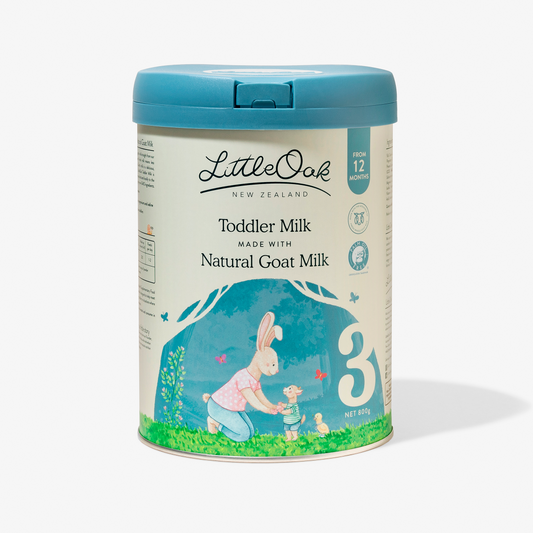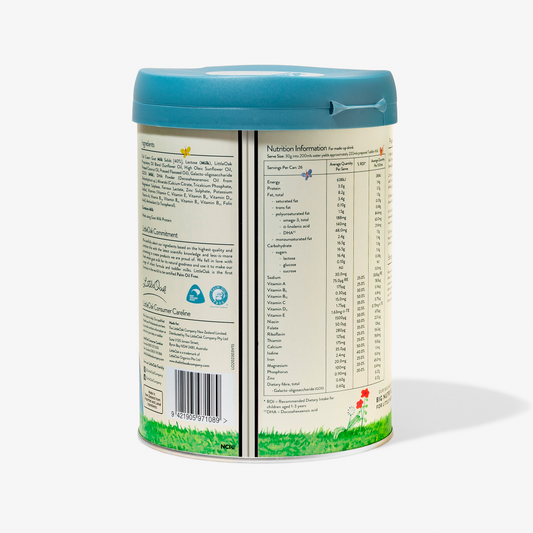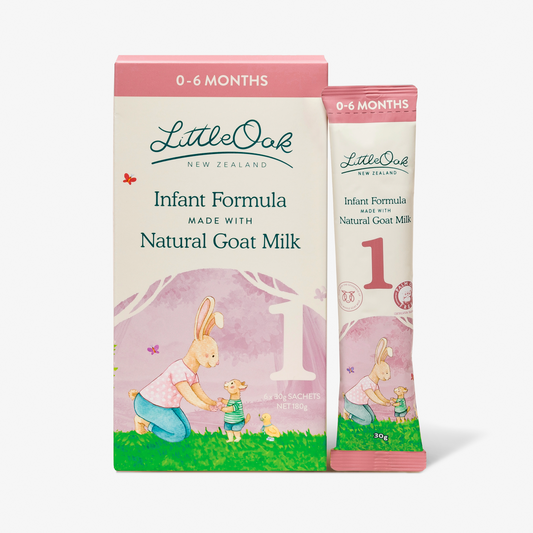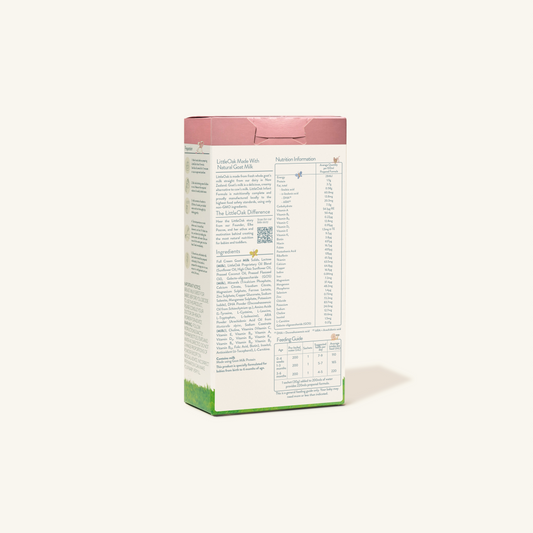
Top 5 Baby Formulas for Babies with Sensitive Stomachs
You want nothing but the best for your bundle of joy, especially when it comes to their diet. Babies often have sensitive little tummies, making feeding a bit of a puzzle. But don’t worry!
To assist you in gauging your baby’s needs and navigating the baby formula selection process, this article will cover common digestive issues to watch out for and highlight baby formula options that might help soothe those tiny tummy troubles.
Top 5 Sensitive Stomach Formula Brands and Infant Formulas
Navigating tummy troubles with your little one? No worries! Today's market offers a variety of sensitive formula options perfect for those delicate digestive systems. These baby formulas are crafted with care to be easy on tiny tummies and help smooth over common digestive hiccups.
Here are some of the things to look out for when choosing the right formula:
- Hypoallergenic Formulas: These little lifesavers are perfect for babies who can't handle milk protein or have other food allergies. The proteins in hypoallergenic formulas are broken down into teeny-tiny pieces to keep those annoying allergic reactions at bay. Plus, some are even free of other common culprits like soy.
- Lactose-Free Formulas: Got a little one who struggles with lactose? No worries! Lactose-free formulas swap out lactose for other carbs like corn syrup solids or sucrose, making it easier on those tiny tummies.
- Partially Hydrolyzed Protein Formulas: For babies with sensitive bellies or a higher risk of allergies, partially hydrolyzed formulas are a great pick. These formulas feature proteins that have been partially broken down, making them more digestible and less likely to cause an allergic reaction compared to their whole counterparts.
- Specialized Formulas: When it comes to specific digestive issues like constipation, colic, or reflux, there's a formula for that! Specialized formulas are designed to tackle these common infant troubles, bringing a little more peace to feeding time.
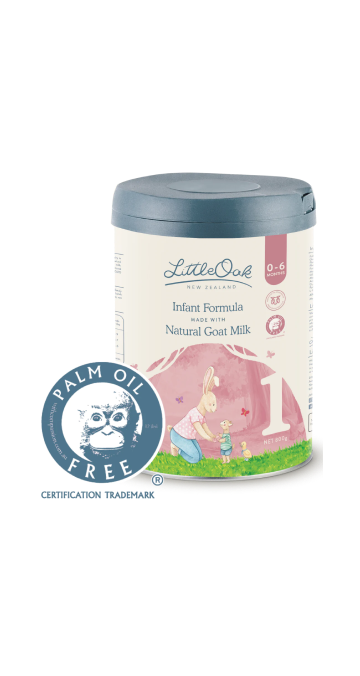
Granola Baby's #1 Choice for value & nutrition
1. LittleOak
Our #1 pick for the most nutritious infant formula, LittleOak products are designed to meet the dietary needs of growing little ones. It is made with fresh whole goat milk straight from dairy in New Zealand. Packed with A2 proteins and with the world's first certified palm-oil free formula, LittleOak is the all-around best choice for nurturing and growing your little ones from birth to 4 years of age.
Key Product Info:
- The world's first approved palm oil free baby formula
- Made from whole goat milk from New Zealand
- Has the highest concentration of naturally occuring A2 proteins
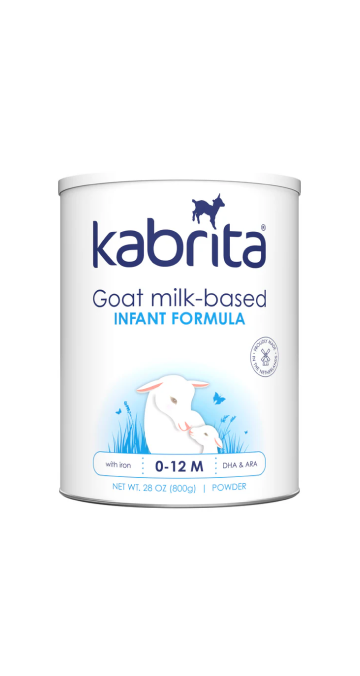
Leading Formula in Europe
2. Kabrita
Kabrita Goat Milk Infant Formula is a gentle and nutritious alternative to cow's milk-based formula, specifically designed to meet the nutritional needs of newborns and infants up to six months of age. Made with high-quality non-GMO goat milk, this formula is naturally easy to digest and gentle on little tummies, making it a great choice for babies with cow's milk sensitivities or digestive discomfort.
- Unique oil blend. Shown to promote more healthy bacteria in the gut, reduce colic and gas, reduce constipation, and allow for better absorption of fat and calcium.
- No GMO ingredients added under EU regulations
- Good carbohydrates & fats to match breastmilk
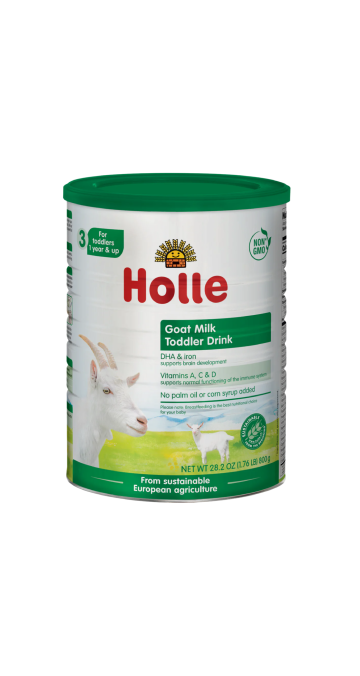
Best Cow Milk Option
3. Holle
For babies with sensitive stomachs, Holle baby formula emerges as a top choice, offering purity and gentleness sourced from Demeter farms with the highest European organic certification. With its starch-free formulation and organic ingredients, Holle provides a soothing solution for delicate digestive systems, promoting comfort and ease.
Key product info:
- Certified organic ingredients sourced from biodynamic farms ensure purity and quality, making it ideal for sensitive stomachs.
- Smooth texture and natural taste similar to breastmilk enhance digestibility and palatability for babies with sensitive stomachs.
- Starch-free formulation suitable for newborns up to 6 months minimizes the risk of digestive discomfort, making it gentle on sensitive tummies.
- Numerous testimonials attest to Holle's effectiveness in providing relief for babies with sensitive stomachs, solidifying its reputation as one of the best formulas for sensitive infants.
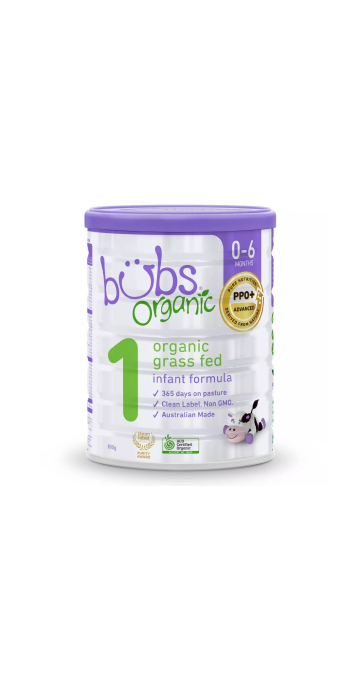
Affordable Pricing
4. Aussie Bubs
Bubs Goat Milk Follow-on Formula Stage 2, 800g. Australian goat milk formulated to support gentle digestion for tiny tummies aged 6 to 12 months. Australian organic whole milk base comes from cows that graze outside 365 days a year.
Key Product Info:
- First 1,000 Days and Clean Label Certified
- Naturally occurring A2 protein is easy to digest
- Perfect for toddlers with sensitive tummies.
Understanding Digestive Issues in Infants: The Need for Sensitive Formulas
Babies can have all sorts of tummy troubles in their early months. These common digestive issues can make things uncomfortable for your little one and pretty stressful for you.
Here are some of the most frequent baby belly woes:
- Colic: Colic means your little bundle of joy is going through a stretch of excessive crying and fussiness, typically making those late afternoons or evenings quite the adventure. While the exact cause remains a bit of a mystery, it’s often linked to gastrointestinal discomfort or an immature digestive system.
- Gas and Bloating: Babies sometimes turn into little air traps, swallowing air during feedings, especially if the feeding techniques are off. This can lead to gassy tummies and bloated bellies, which naturally translates to a fussy baby.
- Reflux: Gastroesophageal reflux (GER) happens when the stomach contents decide they’re not done partying and make their way back into the esophagus, causing discomfort and possibly some unexpected spit-ups.
- Constipation or Diarrhea: Constipation is all about having a tough time passing stools or not going as often as you'd expect. Up to 30% of kiddos face this issue, thanks to factors like an immature digestive system or not enough fluids. Diarrhea, on the other hand, steals the show with loose, watery stools and more frequent trips to the diaper changing station. It can be triggered by a host of things, such as viral or bacterial infections, food allergies or sensitivities, or even a sudden diet change.
Causes of digestive issues in babies
Digestive dilemmas in babies can pop up for a bunch of different reasons. Pinning down the cause can be a real game-changer for parents trying to smooth things out for their little ones.
Here are some usual suspects that might be causing tummy troubles in your tiny human:
- Immature Digestive System: Little ones come into the world with digestive systems that are still getting their act together. This means they're often more prone to tummy troubles like colic, reflux, and having a hard time with certain foods. It’s just all part of their digestive debut!
- Formula or Food Intolerance: Some babies might have a bit of a fuss with certain formulas or solid foods. The usual suspects? Lactose, cow's milk protein, soy, gluten, or certain new foods during weaning. These intolerances can lead to symptoms like diarrhea, gas, bloating, or colic. Think of it as their way of saying, "This one's not for me!"
- Food Allergies: Occasionally, babies can react more dramatically to certain foods like cow's milk, eggs, peanuts, or wheat. While intolerances give them a rough time, allergies are like the immune system's over-the-top reaction, causing symptoms such as hives, swelling, vomiting, or even trouble breathing. It’s like their body's way of sending up a red flag!
Advice for Feeding Infants with Sensitive Stomachs
Besides picking a formula that your baby digs, there are a few more tricks up our sleeve to keep them cozy and cheerful. Curious to know more? Keep scrolling!
Age-Appropriate Eating Habits and Schedules
If your little one's tummy tends to be a bit on the sensitive side, mastering some gut-friendly techniques and routines can do wonders for their feeding journey. Here are some parent-approved strategies to keep things running smoothly:
- Slow feeding and burping: Take it easy during feeding time. Let your baby set the pace and take breaks as needed to prevent overfeeding. Popping in a good burp after each session works wonders for releasing trapped air and avoiding discomfort.
- Smaller, frequent feedings: Instead of serving up a baby-sized banquet, consider offering a tapas-style approach with smaller, more frequent feedings. This strategy is kinder on their delicate digestive system. Tune into your baby's hunger and fullness signals—they're pretty good at letting you know when it's time for a nibble.
- Feeding them in an upright position: An upright position during meals can help keep the gears of digestion running smoothly. This trick can also cut down on reflux and regurgitation, common hiccups for babies with sensitive stomachs.
When it's time to introduce a new formula, think of it as a gradual unveiling rather than a big reveal. This gives your baby's tummy a chance to adjust and keeps discomfort at bay. Keep a lookout for any changes or allergic reactions, and don't hesitate to jot down your observations. Baby needs some time to adapt, and seeking professional advice is always a smart move if you're uncertain.
How to Choose the Right Sensitive Stomach Formula for Your Baby
We hope our curated list of top formulas for sensitive tummies makes your search a tad easier. Here are a few extra tips to help you on your feeding adventure:
- Understanding Baby's Specific Digestive Needs
Keep an eye on how your little one reacts during and after feedings. Take note of any signs of discomfort or allergies, and remember to factor in family history and your baby’s age.
- Comparing Different Sensitive Stomach Formula Options
When selecting a formula, it’s crucial to identify any ingredients that might upset your baby's digestive system. Once you’ve narrowed that down, consider the price and availability of the options left on your list.
- The Importance of Consulting with a Healthcare Professional
Before making any changes to your baby’s diet, chat with a trusted healthcare professional. This step is particularly vital for kiddos with dietary restrictions, allergies, sensitivities, or general tummy troubles.
In conclusion
Finding the right formula can make a world of difference in your baby's nutrition and digestive health. By understanding their unique needs and exploring the best solutions, you can ensure they're getting the perfect start. Remember to consult healthcare professionals, pay attention to feeding routines, and choose the right formula to keep your little one comfortable and thriving.
Our Featured Baby Formulas
Made from fresh whole goat milk, our beautiful baby formulas and toddler milk support gentle digestion for little tummies - with less processing and more natural goodness. Goat milk is a rich source of nutrients with naturally occurring A2 casein, oligosaccharides and prebiotics.
-
LittleOak Stage 1 Natural Goat Milk Infant Formula (0-6 months)
Vendor:LittleOakRegular price $52.95Regular priceUnit price / per -
LittleOak Stage 2 Natural Goat Milk Follow-on Formula (6-12 months)
Vendor:LittleOakRegular price $52.95Regular priceUnit price / per -
LittleOak Stage 3 Natural Goat Milk Toddler Drink (12+ months)
Vendor:LittleOakRegular price $52.95Regular priceUnit price / per -
LittleOak Stage 1 Natural Goat Milk Infant Formula Sachet (0-6 months)
Vendor:LittleOakRegular price $19.95Regular priceUnit price / per

